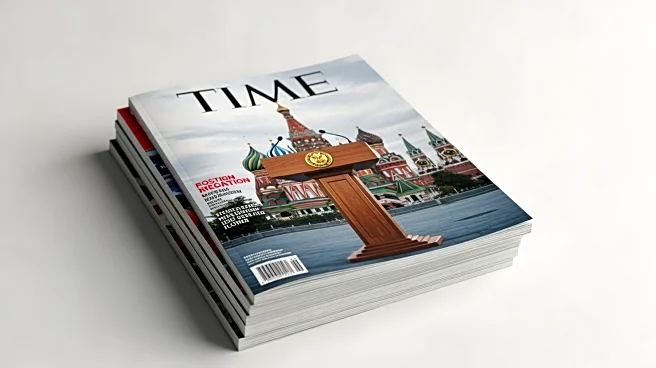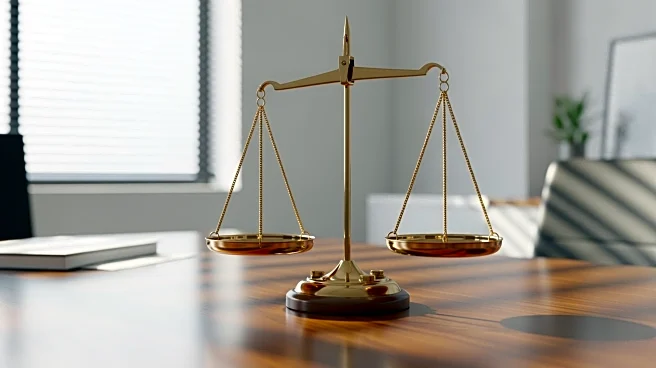What's Happening?
A Russian official has criticized TIME Magazine for publishing an unflattering photo of President Trump on its cover, which was intended to commemorate a ceasefire deal between Hamas and Israel. The photo,
taken by freelancer Graeme Sloan, depicts Trump with a sagging neck and wispy hair, leading to accusations of malice and bias from Russian Foreign Ministry spokesperson Maria Zakharova. The magazine's portrayal of Trump contrasts with its previous complimentary coverage of President Biden, sparking debate over media bias. Despite the photo, the accompanying article praised Trump's peace plan as a potential strategic turning point for the Middle East.
Why It's Important?
The controversy surrounding TIME Magazine's cover photo highlights ongoing tensions between media portrayals and political figures, particularly in the context of U.S.-Russia relations. The criticism from a Russian official underscores the sensitivity of international perceptions of U.S. leadership, which can influence diplomatic relations. The incident also reflects broader discussions about media bias and its impact on public opinion, potentially affecting how political achievements are perceived domestically and internationally. The peace deal itself, as a significant diplomatic achievement, may shift dynamics in the Middle East, affecting regional stability and U.S. foreign policy.
What's Next?
The debate over media representation of political figures is likely to continue, with potential implications for how future diplomatic achievements are covered. The ceasefire deal brokered by Trump may lead to further negotiations and diplomatic efforts in the Middle East, with stakeholders closely monitoring its implementation and impact. Reactions from political leaders and media outlets could shape public discourse and influence future coverage of U.S. foreign policy initiatives.
Beyond the Headlines
The incident raises questions about the ethical responsibilities of media outlets in portraying political figures, especially in the context of international diplomacy. The portrayal of Trump in the media may affect public perception and trust in journalism, prompting discussions about the role of media in shaping political narratives. The broader implications for U.S.-Russia relations and media ethics may lead to increased scrutiny of how political achievements are reported and perceived globally.









